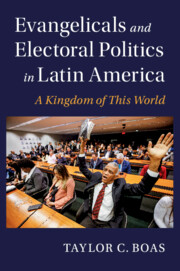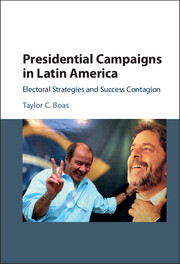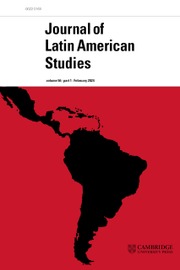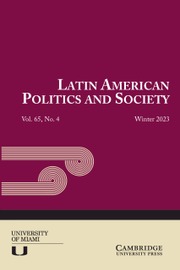Evangelicals and Electoral Politics in Latin America
Why are religious minorities well represented and politically influential in some democracies but not others? Focusing on evangelical Christians in Latin America, this book argues that religious minorities seek and gain electoral representation when they face significant threats to their material interests and worldview, and when their community is not internally divided by cross-cutting cleavages. Differences in Latin American evangelicals' political ambitions emerged as a result of two critical junctures: episodes of secular reform in the early twentieth century and the rise of sexuality politics at the turn of the twenty-first. In Brazil, significant threats at both junctures prompted extensive electoral mobilization; in Chile, minimal threats meant that mobilization lagged. In Peru, where major cleavages divide both evangelicals and broader society, threats prompt less electoral mobilization than otherwise expected. The multi-method argument leverages interviews, content analysis, survey experiments, ecological analysis, and secondary case studies of Colombia, Costa Rica, and Guatemala.
- Develops a new theory of the descriptive representation of religious minorities
- Provides a broad, cross-national comparison of six Latin American countries over more than a century
- Adopts a multi-method approach, combining survey experiments, regression analysis, case studies, elite interviews, and content analysis of archival material
Reviews & endorsements
‘… a new wave of scholarship on religion and politics in Latin America has developed. Whereas an older body of work up through the 1990s primarily used qualitative methods, including ethnography and historical analysis, recent scholarship on religion and politics in the developing world typically uses both behavioralist empirical methods and rigorous tracing of causal processes. Perhaps the most important new Latin Americanist book in this renaissance is Taylor Boas’s 2023 monograph … Boas’s explanation is powerful and intellectually satisfying.’ Amy Erica Smith, Perspectives on Politics
‘Boas provides a well-researched, comparative, and historically institutionalist analysis that compellingly elucidates the roots of Latin American evangelical politicization. It appeals to a broad and interested audience, especially serving as an excellent research and teaching reference for scholars in the field of Christianity in the Latin American context.’ Tianji Ma, Mission Studies
Product details
April 2024Paperback
9781009275118
339 pages
228 × 151 × 21 mm
0.52kg
Available
Table of Contents
- 1. Explaining Evangelical Representation
- 2. Voting Behavior and Political Institutions
- 3. Growth, Diversity, and Political Theology
- 4. Threats and Political Engagement in Brazil
- 5. Comfort and Political Quiescence in Chile
- 6. Cleavages and Political Ambivalence in Peru
- 7. Conclusions and Comparative Perspectives.





